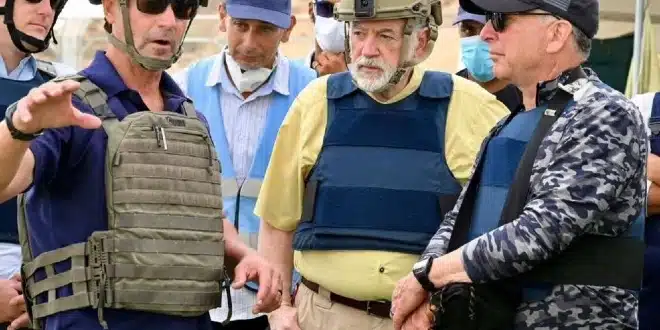In a key diplomatic development, U.S. Special Envoy Steve Witkoff confirmed on Friday that his recent visit to Gaza was aimed at shaping a comprehensive strategy for the delivery of humanitarian assistance to the region. The visit underscores growing American efforts to address the dire humanitarian conditions in the conflict-affected territory.
Direct Assessment on the Ground
Witkoff shared details of his field visit in a social media update, stating, “Today, we spent over five hours inside Gaza,” along with a photograph showing him in a protective vest engaging with aid workers at a local distribution hub. His post reflected both the urgency and the complexity of organizing safe and effective aid operations in the region.
The envoy explained that the objective of the visit was to contribute to the development of a structured plan for delivering essential supplies — particularly food and medical assistance — to Palestinian civilians caught in the midst of a prolonged humanitarian crisis.
Washington’s Expanding Role in Gaza Aid
Witkoff’s visit represents a continuation of U.S. diplomatic and logistical engagement in the region, with increasing emphasis on direct coordination with aid organizations and local partners. U.S.-backed distribution centers have played a growing role in facilitating assistance, especially amid ongoing access restrictions and infrastructure damage caused by conflict.
His personal presence in Gaza signals a shift toward more hands-on U.S. involvement in aid logistics, and likely reflects concerns within Washington about ensuring both the quantity and the reach of assistance. Observers note that on-the-ground visits by high-level officials may also serve to build trust with partners in the region and verify conditions firsthand.
The broader U.S. aid strategy, while still evolving, is expected to include increased funding for humanitarian organizations, enhanced monitoring of aid flows, and collaboration with both international partners and regional actors to scale up operations in Gaza.
Witkoff’s statement did not detail specific timelines or commitments, but his engagement on the ground adds weight to calls for a more robust and transparent humanitarian pipeline, especially as food insecurity and medical shortages remain acute.


